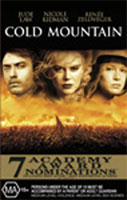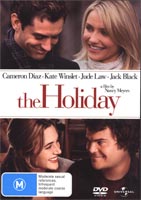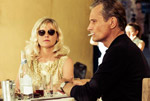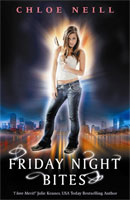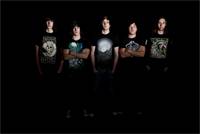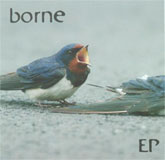Jude Law Black Sea
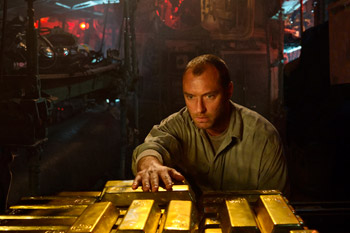
Jude Law Black Sea
Cast: Jude Law, Ben Mendelsohn, Scoot McNairy, David Threlfall
Director: Kevin Macdonald
Genre: Adventure, Thriller
Rated: M
Running Time: 114 minutes
Synopsis: Outside a submarine thousands of leagues under the sea lies a dark, cold death. Inside the sub lies a crew on a mission that could salvage their lives…Mining full-speed-ahead tension from a fathoms-deep treasure hunt, Black Sea is a suspenseful adventure thriller directed by Academy Award winner Kevin Macdonald.
Robinson (two-time Academy Award nominee Jude Law) is a submarine captain, and the sea calls him at the expense of all else: his nearly 30 years of voyages have cost him the love of his wife Chrissy (Jodie Whittaker) and child. When the salvage company for whom he has toiled over 11 years abruptly lays him off, this working-class ex-Navy man finds himself adrift.
But after hearing the tale of a German U-boat full of WWII-era gold sitting on a bed in the Georgian depths of the Black Sea, the captain feels he can prove himself anew. He jumps at a funding offer facilitated by go-between Daniels (Scoot McNairy) and pulls together a misfit crew to brave the deep and go after the sunken treasure. A vintage Russian diesel submarine will be manned by British and Russian roughnecks, with a lone American – Daniels – aboard, obliged to keep an eye on his shadowy bosses investment.
The old sub is judged seaworthy. The crew's Russian contingent is led by savvy Blackie (Konstantin Khabenskiy) and includes taciturn Morozov (Grigory Dobrygin), stalwart Baba (Sergey Veksler), pragmatic Levchenko (Sergey Kolesnikov), and formidable Zaytsev (Sergey Puskepalis). The English contingent includes volatile Fraser (Ben Mendelsohn), veteran Peters (David Threlfall), wisecracking Reynolds (Michael Smiley), and impressionable Tobin (Bobby Schofield), whom Robinson takes under his wing. As the sub probes deeper and deeper while evading detection from the Russian navy above, everyone anticipates collecting a share of the gold…but the number of shares declines as greed and desperation take control on-board the claustrophobic vessel. A shocking betrayal, a startling discovery, and escalating uncertainty about the mission cause the men to turn on each other – only to have to make an uneasy truce in hopes of ever making it back to the surface alive.
Black Sea
Release Date: April 9th, 2015
About The Production
From his Academy Award winning One Day in September and The Last King of Scotland to Touching the Void, director Kevin Macdonald has consistently explored human beings' emotional, psychological, and physical responses as they find themselves in frightening predicaments – sometimes brought about by others' actions, sometimes by their own, and sometimes brought by nature itself. He admits, 'I've always been drawn to explore what the constant threat of danger does to a person's psyche."
In seeking to explore these themes further, he realised that he 'wanted to make a film about the terror of being trapped underwater – and I felt that there's a general fear attributed to submarines because of the inherent claustrophobia.
'I also gave thought to how the people who do sail them become a family. They can get so used to being with each other within the confines of a submarine that when they get off of it they are quite dysfunctional people. There are people who are happier at sea, happier in this tin can, because they understand it and they understand the world that's around them - whereas in the real world, they are lost. That became an inspiration for the characters here, as did our own fascination with what submariners do – spending months and months on a submarine. So I thought, -Let's make a film in a submarine.'" Accordingly, he discussed the idea of making a submarine-set film on just one soundstage with his frequent collaborator, BAFTA Award winning producer Charles Steel. 'What came to mind for us was the incident years ago with that Russian submarine, the Kursk, which became trapped at the bottom of the ocean," notes Charles Steel.
The team also found themselves reflecting on such classic movies as The Treasure of the Sierra Madre and The Wages of Fear and the latter's remake Sorcerer, all of which were visceral and gritty while exploring human nature – whether startlingly self-preserving, surprisingly compassionate, or aggressively greedy.
Kevin Macdonald elaborates, 'Those movies didn't have submarines in them. But they had ideas central to the story we wanted to tell: madness overtaking characters in a search of a fortune, for instance."
Charles Steel reflects, 'With The Wages of Fear, there was also the strong element of desperate men taking on a suicide mission. Also, our story has a -dirty dozen' so there's another movie influence [The Dirty Dozen] in there.
'We felt that we should make a thrilling ride that felt real, and dirty with sweat, and smelling of the diesel from the engines. There is always a sense of realism to the films Kevin Macdonald makes, whether they are fact-based or fictional."
Kevin Macdonald and Charles Steel met with award-winning playwright and screenwriter Dennis Kelly. The duo felt that his experience as a playwright who had written edgy dramatic scenes among tough characters would enhance a film that would mostly be set in a submarine's confines. Dennis Kelly sparked to their concept and started writing.
The Black Sea script was Dennis Kelly's first feature screenplay. He got started with extensive research into submarines. The screenwriter explains, 'I read loads of books and even got online and joined submariners' forums. But then I reversed course, because I didn't want that to overtake the story; I wanted it to be about the characters. Yes, you have to have the reality of the submarine but at its heart this story is about desperate guys trying to claw something from life, trying to rip something back for themselves."
Charles Steel marvels, 'It is a testament to Dennis Kelly and his writing that he nailed it on the first draft; the characters and the story just exploded. Black Sea is a really cracking story that twists and turns as you go. Our response was, -Wow.' Here was an even bigger canvas than we had imagined, so we recalibrated our development process."
Eight more drafts of the script followed. Dennis Kelly remarks, 'Kevin Macdonald has a really good eye for story, which matters greatly in a script like this; you've got to keep telling the story. It was a long, involved process to get the screenplay ready."
As Dennis Kelly crafted the script, it began to take shape as a heist movie set on a submarine; as with many a heist movie, those engineering the job are desperate and disparate. Charles Steel muses, 'This is a story of our times. These are skilled men, yet in the economy of this day and age they have been tossed onto the scrap heap of life and judged as being no longer of any use.
'When they are approached with the prospect of retrieving gold from the bottom of the Black Sea, and getting compensated for it, that's incentive enough to risk what's left of their lives – and their souls."
Kevin Macdonald adds, 'These days, there are so many people who have been laid off and would like to fight back against who they blame: big corporations, the establishment, the political system. The lure of getting a big score is eternal, but now there's also this feeling that it would be a way of taking revenge."
To that end, there was considerable discussion about the denouement to the tale. Dennis Kelly recalls, 'It made finding an ending that felt satisfying without being either saccharine or cruel a very tricky thing. We wrote and rewrote again and again.
'The last five pages were difficult – these characters embody the best and worst of humanity, often at the same time. They can let greed make them brutal but then the very next minute they will be heroic."
Kevin Macdonald notes, 'Black Sea is an old-fashioned adventure story, populated by a great set of characters. Now, as with any movie taking place on a submarine, we knew there were certain elements we needed to have: an explosion where the sub almost goes down, and a mutiny, for example.
Heightening the drama, and the peril, in Black Sea is consistent miscommunication – sometimes accidentally, sometimes wilfully – among the crew, since not everyone speaks the same language.
Determined to lash these men together as a cohesive unit is Robinson, a proud submarine captain who has nothing left to lose – having alienated his wife and child – and yet envisions a cut of sunken loot as his last chance at any happiness. Kevin Macdonald felt that 'the part called for a British actor who could believably portray a real man who had so much going for him but has had life take its toll entering middle age. Jude Law understood all those aspects of the character."
Jude Law was gripped from his first reading of the screenplay. He states, 'It had all the elements of the classic submarine films: intense adventure with characters figuring each other out and facing a dilemma. Then there's the question of, who will survive? Dennis' Kelly characters were very well-defined, and there was this wonderful theme throughout of hardworking men who have been done down by the world but who were going to fight back and stick their fingers up to the powers that be."
The two-time Academy Award nominee set about physically transforming himself into the blue-collar Robinson by shaving his head, bulking up his physique and changing up his overall physicality, and perfecting an accent.
Kevin Macdonald, who was born in Glasgow, elaborates that 'Robinson's accent is a very specific Scottish one, from Aberdeen in the Northwest. Jude Law carefully honed it; in Aberdeen – a city made of granite – there is a long seafaring tradition."
Jude Law worked closely with costume designer Natalie Ward, and hair and make-up designer Marese Langan, to further transform himself into the character. Natalie Ward notes, 'People who have been in the military often can't shake that off, especially someone who has served on a submarine. Jude Law wanted his clothes to be practical and without vanity, but he didn't want to look scruffy so Robinson tucks his shirt in and rolls his sleeves back – as if he were still in uniform."
The character's very name – referencing both Robinson Crusoe and the Swiss Family Robinson – is meant to evoke a sense of adventure. There is also an element of Moby Dick's obsessive and destructive Captain Ahab in Robinson. As Jude Law remarks, 'Here is a man who feels the world has dealt him a hard hand. He is hard working, prideful, stubborn - and flawed, like all the great characters.
'Robinson has moments of great heroism. He's able to harness the powers of his crew and move them in the overall direction he wants to go. But you also realise that his obsession with succeeding in this mission, and with what this mission would bring him, could override the concern he has for the men on board."
Natalie Ward notes, 'The script integrates Robinson's naval background and marine salvage background, and we see his home – or, what's left of it."
Kevin Macdonald took Jude Law and actress Jodie Whittaker, cast as Robinson's wife Chrissy, along with a very lean crew to film footage in Cornwall just ahead of the main shoot. Jodie Whittaker reports, 'I hadn't ever worked like that on a film, and it was exciting. Jude and I worked out who our characters were to each other. Kevin Macdonald's notes were so specific but not in any way restricting."
'That back story on Robinson and what he's lost – not only financially, but emotionally – was vital," says Jude Law. 'We wanted to show a world that Robinson drifts back to in his mind at times. Fortunately for me, to shoot some of that early on made me able to carry in my own head this golden image: man, little boy and wife on a beach in what was a perfect time. It's all that has gone away, and all that he hopes to somehow win back. He will risk everything to achieve even a little."
Jude Law was thrilled that Kevin Macdonald and Dennis Kelly were open to collaboration. He remarks, 'We met many times to discuss how we could turn up the colour on Robinson as a character. A lot of the work you do as an actor is preparing what you want, or hope, to get out of a part. When a writer like Dennis Kelly hears what you are saying and puts it into the piece so it is actually on the page, that helps what you do in front of the camera.
'Kevin Macdonald embraced my input, too; now, that is not always necessary in the relationship between actor and director but it is incredibly encouraging when it does happen, and so you feel you're on the right path."
The actor elaborates, 'The experience and skill Kevin Macdonald has from making documentaries informs his narrative films – and affords him a flexibility of style. He shows great attention to detail, but at the same time there's a rough-around-the-edges quality to his work: he will capture moments very quickly, in one fluid motion. That allowed us, because of the physical restrictions in our characters' environment, to do big scenes all in one go and to not have to stop-and-start or chop-and-change all the time."
Charles Steel notes, 'Jude Law is at the heart of our movie. He brought so much to this role of a man who has been kicked down."
Kevin Macdonald adds, 'This is Jude Law as you've not seen him before. Many people on the set didn't recognise him until they saw those beautiful blue eyes."
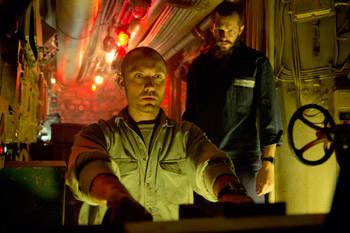 Scoot McNairy, the lone American in the film, is cast as the duplicitous Daniels. McNairy found Jude Law to be 'incredibly charming, but he also knows his s"t. He's a fantastic actor."
Scoot McNairy, the lone American in the film, is cast as the duplicitous Daniels. McNairy found Jude Law to be 'incredibly charming, but he also knows his s"t. He's a fantastic actor." British Independent Film Award winner Michael Smiley, cast as Robinson's -right-hand man' Reynolds, states that 'Jude Law is one of the lads; we muck about and he's very generous."
'Jude Law is an easy-going presence on-set," remarks another British Independent Film Award winner Ben Mendelsohn, who is cast as the dangerous diver Fraser. 'But he balances that with taking on the mantle of the lead character, knowing when the audience needs to follow him."
While taking on the lead role as Robinson takes the helm of the submarine, Jude Law was pleased to be surrounded by a strong ensemble. He says, 'It was one of the strengths of the script, having a group of characters who each brings a specific skill into an enclosed space – and each brings a threat in their own way. These actors brought absolutely everything out of the characters. I was proud to be their skipper!"
Kevin Macdonald reports, 'For the crew that Robinson is trying to hold together, we concentrated on getting terrific character actors rather than populating our sub with name stars." Daniels McNairy had lobbied to meet with Kevin Macdonald. The actor says, 'Kevin Macdonald directing this movie was enough for me; whether or not I got a part, I wanted to talk to him about Touching the Void, which I've watched so many times.
'The script drew me in because of it being 12 men in one location, and you see the frustration and tension build up among them – and also how it eats them up individually."
Yet another draw for the busy American actor was the prospect of reteaming with his fellow actor from Killing Them Softly, Ben Mendelsohn. Daniel McNairy reports, 'Ben Mendelsohn is one of the most entertaining people I've ever been around; he is such fun to work with."
Ben Mendelsohn confirms, 'Scoot and I have a bit of a giggle together. Our characters in Black Sea share similar concerns about what's going on with the mission. Like the other members of the crew, Fraser wants to go out and get what's his, have a shot at his dream. But he has a temper. I wanted to make plausible why he feels a certain way, or how something has a different meaning to him than it does to others around him.
'I have a great love for submarine movies, especially Das Boot. One pleasure of making films is that you get to do a lot of things that you'd never get to do in any other job. Part of acting is good old-fashioned make-believe from when you're a little kid, and having the realistic environment we had on Black Sea made it a lot easier to pretend."
Just as members of the on-screen Soviet contingent of the submarine crew have worked together prior, so too have some of the Russian actors; at the very least, characters and actors alike knew each other by reputation. Kevin Macdonald and Charles Steel had insisted to casting director Nina Gold that only Russian actors be cast in the roles of the Soviet crew members.
'I didn't want the risk of any bad accents detracting from the drama of the miscommunication between crew members that can't – or won't – understand each other. This way worked out infinitely better because we ended up with some of Russia's biggest and most highly regarded actors," says Kevin Macdonald.
So it was that the sole stars of the acclaimed How I Ended This Summer, Grigory Dobrygin and Sergey Puskepalis, would once again be enmeshed in a high-tension situation together. Konstantin Khabenskiy, known worldwide for the Night Watch and Day Watch movies, would be showing grace under pressure anew.
Grigory Dobrygin comments, 'When I read the script, what struck me is how this story goes back to the beginning of time – how someone changes if and when they see gold. It's a test of character for all of these men, and makes you think about what you would do or which characters you're most like. I was intrigued by the character of Morozov because he's older than I am, and he has a lot bottled up inside. Yet he tries to stay closed off and stay focused on the mission.
'Having done my first movie with Sergey Puskepalis, he's already my favourite partner to act with. But it was a dream come true to get to work with Konstantin Khabenskiy because I admire his theatre and movie work."
Konstaintin Khabenskiy remarks, 'After meeting with Kevin Macdonald I was ready to go make this movie with him because I felt that he saw all the characters as main characters.
'Black Sea is all about choices. My character of Blackie is kind of a middleman – life has thrust him into these situations – but he still needs to make his own choices, and he does." Sergey Veksler, one of Russia's best-known character actors, signed on to play sonar operator Baba. He notes, ''Baba' is the name the British crew members call him, but in Russian he is -Baibai,' which is a respectful term for -wise older man.' He is the eyes and ears of the submarine."
The actor muses that 'reading the script, this story felt very familiar to me. I have had people in my life who looked for a second chance to win back their dignity."
Sergey Kolesnikov, cast as Levchenko, concurs and adds that 'each of the people on this sub is trying to get dignity back. My character probably had a wife and kids before and all he has now is untapped energy.
'I liked how the story looked at betrayal and the characters' souls. But what happens in this specific situation could happen anywhere, when communication between people runs up against personality conflicts."
The Russian actors 'brought so much of Russian culture in their approach to playing these parts," affirms Kevin Macdonald. 'Many of them also had knowledge of military and naval details; Grigory Dobrygin's father is a submarine captain.
'Most importantly, they would chat away in Russian the whole time in the background – which we encouraged! Dennis had simply written in the script directions in the order of, -They discuss something among themselves', and our actors would come up with wonderful bits of business – adding a great deal of authenticity."
An interpreter was on the set full-time to translate every conversation between Kevin Macdonald and his actors. 'She was there to help us 24/7," marvels Kolesnikov. 'I've no idea how she's still alive!"
Smiley remembers, 'Katia [a.k.a. Ekaterina Romanova] would translate jokes I would tell to one of the Sergeys. The way she translated, I'd get a laugh at the end. We breached the language barrier with jokes. That's one of the reasons why I love acting: you make new friends."
'Our humour is very similar," agrees Veksler. 'Often we would understand each other without the translator."
Beginning with the two week rehearsals process, the culture-clash aspects of the story and the translation processes manifested in ways that fed advantageously into the portrayals. McNairy notes, 'We focused a lot on our performances during the rehearsal weeks. Dennis Kelly would work with us and then go home to rewrite scenes.
'I learned so much from the Russians, and from the ideas that they would come up with. This shoot was a reminder that, as an actor, you're supposed to have some fun!"
'The volume was loud," laughs Jude Law. 'There was a certain dance of egos, and among different styles and approaches, every day. We were generally respectful of each other." Dobrygin says, 'Learning English got very technical for me, but after making this movie I think I can speak it for another role. Jude Law helped me so much and he would put the same energy into his performance even when the camera wasn't on him."
Smiley had been approached early on by Kevin Macdonald after the British Independent Film Awards ceremony where the actor had been honoured. Smiley recalls, 'Kevin Macdonald came over and was very complimentary and said, -I've got a project that I'm working on and I'll be in contact.'
'When I found out that the project was a submarine drama, I was incredibly excited; submarines have played a part in my family. My late father was a submariner from the age of 17 until 24, so I've always had a fascination with them. We used to watch Das Boot together and he would tell me about what it was like to be on a submarine. So, [the character of] Reynolds is really Frankie Smiley."
As had Michael Smiley and Grigory Dobrygin, Scoot McNairy felt a paternal connection through his character. He offers, 'My father is a financial planner, so here was a chance to play a role where the character does something close to what my father works at – and I got to find out a little more about his job for the past 40 years. I talked to him about an expedition he'd gone on to take precious metals off ships at the bottom of the ocean.
'This character of Daniels felt like one I hadn't played before; he's stressed-out from his finance dealings and still tries to be the voice of reason on the boat. But the submariners have hatred towards him from the get-go because of what the system has done to them all." Newcomer Bobby Schofield plays, appropriately enough, first-time submariner Tobin. 'I auditioned, and here I am in a big film," he marvels. 'At such a young age, I get to work with an amazing cast on an action-adventure thriller."
Bobby Schofield adds, 'I liked the relationship between the characters of Tobin and Robinson, and Jude Law – whom I've watched in films for as long as I can remember – was great to work with, just as enthusiastic as me."
'Bobby Schofield is brilliant, and he brings soul to our movie," states Kevin Macdonald. 'Here he was, surrounded by actors who have been at this for a while and, point for point, he would be up there with them."
During rehearsals, Kevin Macdonald screened Sorcerer for the actors. It was, he notes, 'a way of saying, -This is who you are – these sort of men.' In that movie, the characters are desperate and are on a suicide mission to have even a little chance of maybe earning enough money to change their lives. That is exactly what resonates with our characters in Black Sea."
Charles Steel reports, 'We brought in a couple of submariners to come and talk about their experiences, including what it was like to be an officer and a crew member. All of this helped bond our group together, which was something we started at the first read – when every actor was there to meet every other actor."
Langan and Ward coordinated verisimilitude with regard to the actors' faces and forms. Ward muses, 'I went through photo books of Russian street life, to get an idea of what the submariners would look like when off-duty. Kevin Macdonald then reminded me, -Have you thought about the English side?'
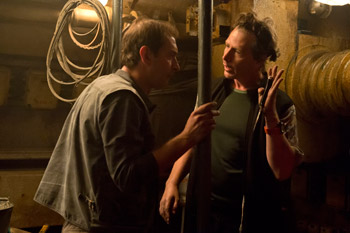 'For those scenes ahead of the arrival on the submarine, I didn't want anyone to be able to look at the Brits' clothes and know immediately whether someone was from the North or the South of England. That costuming had to have a slightly out-of-time feel to it and the rest had to be practical – they have jobs to do on this submarine and they know the situation they're going to be in."
'For those scenes ahead of the arrival on the submarine, I didn't want anyone to be able to look at the Brits' clothes and know immediately whether someone was from the North or the South of England. That costuming had to have a slightly out-of-time feel to it and the rest had to be practical – they have jobs to do on this submarine and they know the situation they're going to be in." Ward adds, 'Because Black Sea is so well-cast, each character is recognisable and you remember who is who. The most contemporary looking person on the boat is the extra man, Daniels, in his simple Polo top and active wear trousers. Aside from him, there's nothing shiny or new on the boat."
The two designers visited Tilbury Docks so that, Langan notes, they could 'get a good visual reference. Quite a lot of the characters have tattoos, so we looked into how to integrate those. Each character had to have his own identity. I'd always have Natalie's costume fittings pictures close at hand and we would do tests at the same time in pre-production." Langan elaborates, 'We wanted the details to be present, but subtle. Members of the crew would look at the call sheet and think, -Why do the actors have make-up so early?' without realising how much effort was going into it; if no one notices the work, well, that was the point. What was challenging at times was keeping on top of the continuity, given the amount of dirt, sweat, and wounds in the scenes.
'The actors were hugely collaborative on how their characters would look because of the backgrounds they had in mind for them. So we would try to incorporate what they felt about their characters."
Ward spoke with Ben Mendelsohn by phone before finalising Fraser's look at a fitting with the actor. She remembers, 'We went with a -jaded stuntman' look plus a bit of Keith Richards. Marese would then work with Ben on how Fraser's hair would stick up to lend more madness.
'With the Russian actors, I relied on them a lot because they knew their characters better than we could. I was in Moscow for three days with [assistant costume designer] Luan Placks and we met with several of the actors – and a translator – to swap ideas. Since Konstantin Khabenskiy's character, Blackie, is the leader of the group, we didn't want him to look as practical as some of the others. But each of the Russian characters wears something that is highly personal to them; that big Russian hat for Baba was something that Sergey Veksler was very keen on, and it works really well on him."
Langan adds, 'Another of the Russian actors definitely had his own opinions, so we changed everything at the last minute – and his research was in fact slightly better!"
As intent as Kevin Macdonald was on casting Russian actors as the Russian crew, he was equally determined to shoot at least part of Black Sea on an actual submarine. 'This was key to the storytelling," notes Charles Steel.
In 2009, the director heard of a private collector who had a Russian submarine, stripped of all its gadgetry, sitting in the Medway River in the southern English town of Rochester, in Kent. The owner, John Sutton, was quickly contacted by Steel.
When Charles Steel and Kevin Macdonald visited the submarine, known as the Black Widow, 'it took our breath away," Charles Steel recalls. 'The scope, the detail – this was a submarine of exactly the type that our story was about."
Sutton clarifies, 'The Black Widow is a Foxtrot class submarine from the Russian Navy, built in 1967. It is a -Hunter-Killer' submarine, meaning that its function was to hunt and kill other submarines. There are only five of these remaining in the world, on display. The one I own has had to be repainted, but internally it was like a closed box with nothing much changed since when it left Russia; the engines, the controls, everything is in there, even cigarette packets and postcards of women. There is nothing like it in the UK
'There is also a full-size torpedo on the sub; the Black Widow gives a glimpse into the Cold War that was part of our history, and into the science of submarines."
Dennis Kelly visited the Black Widow while working on the screenplay drafts. 'We built the story partly around that submarine," notes Kevin Macdonald.
Charles Steel adds, 'Dennis Kelly's process became informed by being on that submarine, which was what he was hoping would happen. He combined what he saw and felt there with the accumulated knowledge he already had through his own research."
The filmmakers became taken with the idea of shooting the entire film on board the Black Widow rather than building a submarine at a studio.
However, as the project was developed further, the practicalities and logistics of doing an on-board shoot became harder to attain. 'It's incredibly complicated and difficult to shoot on a real submarine," concedes Charles Steel. 'But it was something for which we fought strongly. We felt that shooting some of the film in and on the Black Widow was imperative to impart realism. It was important to have a sense of authenticity and credibility – and to see and feel the dirt and the grime!"
Ultimately, the compromise was that, following nearly a week of location shooting in and around London, filming would be done for two weeks aboard the Black Widow. The production would then decamp to the UK's Pinewood Studios for the majority of the shooting schedule; sets were built at Pinewood and a massive water tank was readied for extensive use.
Production designer Nick Palmer did copious research, visiting a vintage U-boat – one of a handful remaining – moored in Hamburg and spending time at the Royal Navy Submarine Museum in Gosport alongside Portsmouth Harbour on England's South coast. Macdonald and Steel also visited the Museum in Gosport several times, including with cast members. 'Sourcing the dials and knobs [for inclusion on-screen] was one of the biggest challenges," Nick Palmer explains. 'Bits and pieces came from naval salvage companies and we also rented a lot from an ex-Russian soldier – appropriately enough – who has a huge collection of military stuff. What we got from him fit into the sets quite naturally."
Meetings were held with submarine experts, who vetted final script changes with Kelly and answered Jude Law's questions.
For the location shoot on the submarine moored in the middle of the river at Rochester, the crew built a pontoon around and adjacent to the Black Widow, housing green rooms, back-up materials, portable toilets, air-conditioning and generators. Charles Steel comments, 'For the crew and particularly the actors, it was all about getting a sense of the sub's confines. We knew they would be able to carry that with them when we moved to the studio."
Given that the Black Widow is not operational, many found the setting to be disconcerting and even eerie. 'The smell of diesel fuel was in the air, and there was rust and pigeon shit everywhere," reveals Scoot McNairy. 'A feeling of exhaustion would come over you just from the isolation; it was a bit like a futuristic prison. It absolutely gave you the feeling of what it was like: the claustrophobia, the mundaneness of the days being the same."
'Trying to differentiate days did sort of go out the window," admits Jude Law. 'You're lacking in light, space, and air."
Grigory Dobrygin reflects, 'I was where my own father had been, in a Russian submarine. We could feel every step, every detail, and sense what it is like to do this work for real."
The production -docked' at the nearby Acorn Wharf Coach Park and, Steel remembers, 'We all had to take a boat across Medway River to the Black Widow submarine each day. We'd climb in, close the hatch and spend the day filming in there. Ten of our actors were on board and the crew was pared back to about 15, but it still felt tight and claustrophobic."
Cinematographer Christopher Ross operated his own camera and wended his way among cast and crew. Kevin Macdonald reports, 'The actors learned how difficult it is to walk past each other, how you bump your head all the time, how uncomfortable life on board is, and how much it smells."
Aside from the olfactory elements, the production documented everything in order that Palmer and his team would be able to craft approximated interiors of the sub on Pinewood soundstages; whole sections of the submarine including the control room, one of the engine rooms and the corridor were replicated. Even the textures and tones of the grease and stains were recreated.
Palmer notes, 'While it was impossible to replicate the exact designs of the submarine, where there is virtually no symmetry, we did strive to replicate the sense of chaos – visually, that is. I copied the chaos rather than individual pieces." Keeping cast and crew off- balance, when called for in a scene, were three large interior sets that were subject to back-and-forth rocking from the gimbals they were built on.
The production designer clarifies, 'For these sets, there needed to be a more user-friendly environment to shoot in. We did have to put in a few things that wouldn't necessarily be there, because the script called for them. The real submarine has got so much stuff coming out of the floor that the actual area you can walk on is very limited. But our sets were based on the same diameter as the real submarine and were roughly the same length as the equivalent spaces in the sub."
Palmer discovered that one tangible element which could not be represented on-screen with total accuracy (if the movie was ever going to get filmed) was the amount of cable and boxes found on a real submarine. He reports, 'We put in as much as we could – which is probably one-twentieth of what is actually there. But we were able to enhance our sets with paint treatments: for where there was a little more of a bare wall, we put a little rust and texture to make it as rich a surface as on the real submarine."
Despite these allowances, the actors found that shooting on the sets was not much easier than shooting on the real submarine. Palmer had his group 'keep the sets quite confined. Stylistically, it was decided that we would not be suddenly floating huge walls out and have the camera pull back; that was not what Chris Ross would be doing, and since the decoration of the sets had to tie in to the camera work, we stayed with confinement.
'My set decorator, Sophie Phillips, coordinated colouring with Natalie Ward; everything was going to be neutral and kept simple for the characters and the submarine."
Filming had to be delayed when the massive water tank at Pinewood saw its aquatic content turn yellow because of a chemical reaction. For safety's sake as well as aesthetic reasons, the 1.2 million litres of water were emptied and the tank was then refilled and reheated. Ward and her department found they needed to have multiples of the costumes at the ready because of wear-and-tear in scenes requiring 'stunts, fire, stabbings – and water, of course; sometimes chlorine would make clothing change colour."
'The challenges were glorious," enthuses Jude Law. 'Whether we were on the real submarine or on the sets, there was always only so much space and only so many rooms. Just the physical proximity of allowing each other to move around and play different moments was hard; you're trying to bring something to the camera and to the story so there was always a physical level of high tension – which was exactly what we needed, and there couldn't have been any other way to tell this story.
'We also learned that if you're in a submarine film then you're in any given scene; you are actively participating because everything that is said is heard, which affects everyone. That changes the dynamic of each scene."
The cast dubbed the you're-always-in-the-scene requirements -bacting'. Michael Smiley explains, 'It's when you've got your back to the camera but you're still acting!
'In the real life of a submariner, one rubs against or bumps into someone; there's an intimacy. But here we had to get out of each other's way and let somebody get on with their job, or their lines."
Sometimes the actors had to get out of the way so that one of their own could hit his mark to get doused. As Jude Law reveals, 'You make a submarine film, you figure you're going to get hit with jets of water. For the first few takes, it adds something; then you realise you've got another nine hours to go."
Bobby Schofield reflects, 'It's like you're at the fairground with your mum and you've been on every ride. The first hour is fun, but then it's, -When are we going home?' and you're just constantly wet with clothing feeling heavier on you."
'That water was room temperature, so it could have been a lot worse," comments Scoot McNairy. 'Coming aboard Black Sea, I somehow hadn't taken into account working with water cannons..."
Camaraderie developed at Pinewood when the actors would take meals together around the submarine set's -mess table', or on the studio premises. Ben Mendelsohn would practice his singing and Michael Smiley would engage opponents in Ping-Pong games. High-fives would be exchanged among the actors after takes of a scene.
A greater camaraderie had been observed weeks before filming, began by Jude Law, when he took the opportunity to learn more about submariners' lives. The Royal Navy had invited the actor to spend four days and nights down in the Gibraltar Straits on an operational Trafalgar class nuclear submarine, the HMS Talent, as part of his preparation.
Jude Law extended his visit to encompass being aboard on Armed Forces Day, which in the UK marks the contribution of Armed Forces personnel past and present. 'I wanted to get a respect for what it means to be a submariner and what I found was extraordinary – sharing an incredible experience with over 130 people," he says. 'It gave me a sense of clarity of how these crews function together, how they put an awful lot of themselves off to one side and operate as a unit."
The Commanding Officer and Ship's Company of HMS Talent, then engaged in fostering relations with the French Navy but temporarily returned to the UK following two months at sea, welcomed Law aboard. He was assigned tasks including keeping an eye on the periscope, listening for contacts during a sonar mission and watching the nuclear reactor. He adhered to the standard -6 hours on, 6 off' work schedule and acclimatised to life as a -sun dodger'. The latter activity, notes Law, is 'what you do whenever you get a break, even a quick one: you run for the sunlight to soak in a few rays and get a bit of air in your lungs before you have to go back down."
The actor adds, 'Sleeping in the small bed took some getting used to, as did waking up and seeing that life on-board has not changed one bit; you step out of your bunk space and the lights are still on and work has been going 24/7.
'The highlight may have been lifting weights in the -bomb shop' [i.e. weapons storage compartment] with the Captain, Commander John Aitken, surrounded by torpedoes and missiles. That beats any gym!"
Jude Law ultimately realised that 'these men's work requires a huge amount of skill and for everyone to work together as a team. People know each other's jobs so that if anyone falls ill or worse, someone can step in.
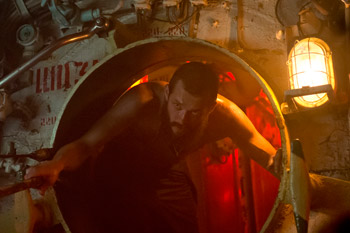 'But I also noted that there is also an internal sense of claustrophobia which you have to suppress – and a certain amount of bottled frustration which you cannot express because it will have a negative effect on others."
'But I also noted that there is also an internal sense of claustrophobia which you have to suppress – and a certain amount of bottled frustration which you cannot express because it will have a negative effect on others." Throughout the development and production of Black Sea, filmmakers and actors alike couldn't help but note submarines' similarity to spaceships. 'They're both contained and sealed while navigating hostile external territory," reminds Dennis Kelly. 'In space, if you step out six feet to the left, you would be dead in an instant and the same is true of a submarine. Death waits just nearby."
Kevin Macdonald adds, 'There's always that sense of how you shouldn't be there because of all that could go wrong, instantly and fatally."
Those epiphanies were capitalised upon by Ross, who with his unit 'pushed the look of Black Sea more towards Alien and 2001: A Space Odyssey rather than Crimson Tide or U- 571."
Michael Smiley nods to Alien's famous tag line, noting that 'under the water you can drown, and it's like outer space: no one can hear you scream."
'There was a whole science-fiction feel to it," says Jude Law. 'Early on in my research, I was told that there is more technology on a submarine than on a space shuttle. We have a wonderful sequence in our movie which is a moonwalk equivalent, stepping out into the cold dark of space – except that it's not space, it's a seabed. But it feels like 2001."
The latter sequence was the last to be shot for the movie and took two weeks to film in the tank at Pinewood, following the participating actors' receiving a full day of training underwater.
Whether for underwater or sub locales, Ross and Macdonald carefully strategised on how to separate one character from another on-screen – spatially and idealistically – and how to convey shifting concerns within the physical confines.
The cinematographer had spent hours exploring the Black Widow before filming began on the vessel. He realised that he 'had to deal with the logistics of a submarine in a way to make them seem not to be there. The hardest thing was trying to make the submarine not look too big; we tried to keep the claustrophobia up and show the men all on top of each other."
Charles Steel notes, 'The work that Chris did was remarkable; he was able to get the visceral element of the danger of being in a submarine, yet achieved fluidity in confined spaces." The latest advances in camera technology were deployed, using small and light digital cameras and bespoke lights created by Panalux. The aim was to make the location a little more accessible without further confining the actors and squeezing them into corners.
Ross reports, 'We had two Ariel Xer cameras recording to the codex recorders and we had a Canon C500 and a Canon 1DC; the C500 is an amazing 4K capture camera that can be literally squeezed into the glove box of a car, so we used that in lots of very tight positions.
Then there's the 1DC, a digital, very high-end DLSR that can be squeezed into even smaller spaces.
'This all helped the actors not feel quite as confined as they already were and it made the sets a little more accessible. When the characters were going through psychological transformations and also on the move, we didn't want them encumbered with the machinations of a film set. There were key lights, but they were hidden."
For the extensive yet barely visible lighting process, Panalux built bespoke LED lights, one centimetre deep and two feet by two feet, or one foot by six inches, all concealed in nooks and crannies of the sub. 'On the real submarine, we had magnetic backs so we could stick them to the walls and therefore not lose any space with rigging and so on," says Ross. A dimmer board was engineered to control all of the lights that had been rigged throughout the Black Widow. Many of these set-ups were reprised at Pinewood because they had worked so effectively during the first leg of the shoot.
Whether aboard the Black Widow or at Pinewood, the contained working atmosphere also engendered trust and creativity. 'One of Kevin Macdonald's greatest attributes is that he makes you feel that the movie is a true collaboration," says Nick Palmer. 'He is interested in everything, and he will also ask you what you think about this or that part of the script."
Grigory Dobrygin offers, 'Kevin Macdonald is so intelligent and can explain what he wants for every character. I never heard him raise his voice. One day, I had a problem with a line and said, -I can't remember this.' He said, -We'll make a billboard,' and it went up near Jude Law. 'Kevin Macdonald would invite us to watch the playback of the scenes. Often we wouldn't, because we all trusted him so much."
Konstantin Khabenskiy remarks, 'Our director was able to tell the difference between when we were being real and when we were -acting.'"
Michael Smiley adds, 'Kevin Macdonald will let you have your voice. If you've got an opinion on something and he thinks it's a half-decent idea, it'll get tried out. He's strong enough in his own vision to then say yes or no."
Sergey Kolesnikov comments, 'Kevin Macdonald pays attention to everything and everyone, and has a very strong spirit. We all felt equal on Black Sea; it didn't matter how big a list of movies someone had made or who was the bigger star. We felt like a good, friendly army." Jude Law concludes, 'Off-camera we were a happy 12-man crew. On-camera was a different story."
Black Sea
Release Date: April 9th, 2015
Have You Seen This?
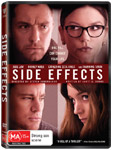
Side Effects DVDs
Thanks to Roadshow Entertainment here is your chance to win one of 15 x Side Effects on DVD.
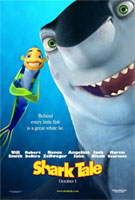
Angelina Jolie - Shark Tale
Angelina Jolie smilingly admits that motherhood sometimes dictates the kinds.
MORE


